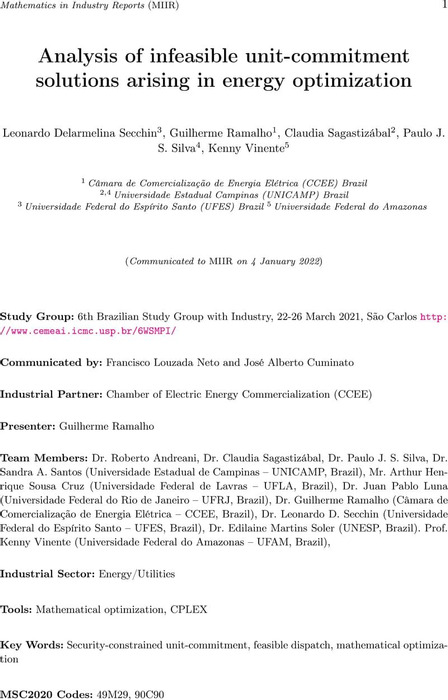Abstract
The day-ahead problem of finding optimal dispatch and prices for the
Brazilian power system is modeled as a mixed-integer
problem, with nonconvexities related to fixed costs and minimal generation requirements for some thermal power plants.
The computational tool DESSEM is currently run by the independent system operator, to define the dispatch for the next day in the whole country.
DESSEM also computes marginal costs of operation
that CCEE, the trading chamber, uses to determine the hourly prices for energy
commercialization. The respective models sometimes produce an infeasible output.
This work analyzes
theoretically those infeasibilities, and proposes a prioritization to progressively resolve the constraint violation, in a manner that is sound
from the practical point of view. Pros and cons of different mathematical formulations are analyzed. Special attention is put on robustness of
the model, when the optimality requirements for the unit-commitment
problem vary.
Content



![Author ORCID: We display the ORCID iD icon alongside authors names on our website to acknowledge that the ORCiD has been authenticated when entered by the user. To view the users ORCiD record click the icon. [opens in a new tab]](https://www.cambridge.org/engage/assets/public/miir/logo/orcid.png)



